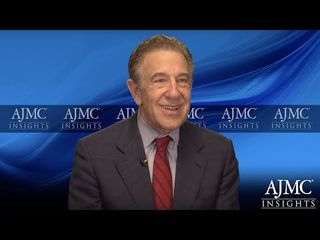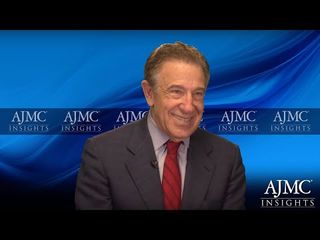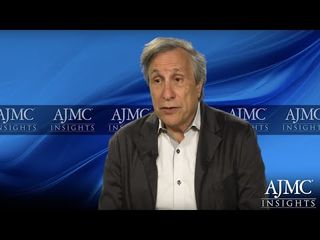
Multiple Sclerosis
Latest News
Latest Videos

CME Content
More News

Gathering the opinions of hospital pharmacists regarding the treatment of multiple sclerosis can be key for successful, multidisciplinary management of the disease, according to results from a focus group.

Online systems, including telehealth, are imperative to maintaining optimal care for patients with multiple sclerosis (MS) during the coronavirus disease 2019 (COVID-19) pandemic, said June Halper, MSN, APN-C, MSCN, FAAN, chief executive officer, Consortium of Multiple Sclerosis Centers, in an interview with The American Journal of Managed Care® (AJMC®).

Difficulty swallowing affects about one-third of patients with multiple sclerosis.
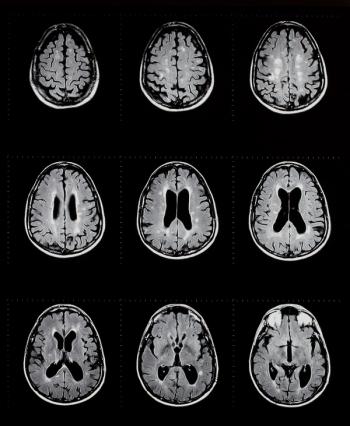
An efficient, concise patient questionnaire gathering health utilization information is effective for patients with multiple sclerosis, according to researchers who created one.

Physical exercise significantly reduces fatigue in patients with multiple sclerosis (MS), according to a study published in BMC Neurology.

The FDA approved Bristol Myers Squibb’s ozanimod (Zeposia) 0.92 mg as an oral treatment for relapsing forms of multiple sclerosis (RMS). Ozanimod can be used to treat clinically isolated syndrome, relapsing-remitting disease, and active secondary progressive disease.

Researchers at the University of North Carolina School of Medicine found that falls simulated through virtual reality could enable early detection of balance problems in patients with multiple sclerosis (MS), according to a study published in PLoS One.

A new study compares synthetic magnetic resonance imaging (SyMRI) to other techniques for measuring myelin volume fraction in patients with multiple sclerosis (MS). The data indicate the technique is effective.

Propionic acid, a short-chain fatty acid, influences the multiple sclerosis (MS) disease course by an immunomodulatory mechanism, according to a study published in Cell.

Fatigue profiles for patients with multiple sclerosis (MS) are based on severity of fatigue and not on various dimensions, according to a study recently published in Scientific Reports.

Researchers developed a multisensor tool that quickly and simply records motor changes in patients with multiple sclerosis (MS), according to a study recently published in Annals of Clinical and Translational Neurology. Researchers hope the introduction of the device will lead to future developments in neurological vital signs using wearable technology.

A special issue takes a wide-ranging look at the cost of prescription drugs.

A new study suggests patients whose systolic blood pressure varies significantly over time might be at greater risk of higher multiple sclerosis disability.

Researchers determined 2 aspects of Epstein-Barrvirus, levels of anti–Epstein-Barr virus nuclear antigen-1 antibodies and history of infectious mononucleosis, act together and independently to increase risk of multiple sclerosis, according to a study published in Frontiers in Neurology.

It can be difficult to notice when a patient is transitioning from relapsing-remitting multiple sclerosis to the secondary progressive form. Soon, neurologists may be able to use a digital tool to catch it.

Several clinical trials have found mesenchymal stem cell therapy effective in treating neural damage in patients with multiple sclerosis (MS), according to a review published in Stem Cell Investigation.

A British study shows nonmedical costs make up a significant portion of the annual expense generated by multiple sclerosis (MS). Most of those nonmedical costs are not covered by insurance.

Patients younger than 50 years who have multiple sclerosis (MS) who receive a gastrostomy tube to enable home enteral feeding live longer than those older than 50 years, according to a study published in Multiple Sclerosis Journal- Experimental, Translational, Clinical.

Scientists have long known that both microglia and blood-derived macrophages play roles in how the central nervous system responds to demyelination, which occurs in multiple sclerosis. A new study explains how the two interact.

Researchers determined that patients with multiple sclerosis (MS) present with significant Aqueduct of Sylvius enlargement over time, which may be attributable to regional atrophy changes and ex vacuo expansion of the aqueduct, according to a study recently published in Fluids and Barriers of the CNS.

Body mass index (BMI) and low vitamin D are causal factors for multiple sclerosis (MS), according to a recent study published in Neurology Neuroimmunology & Neuroinflammation.

Shifting towards an anti-inflammatory and suppressive homeostatic immune system may contribute to increased clinical efficacy of siponimod in patients with secondary progressive multiple sclerosis (SPMS), a recent study in JCI Insight reported.
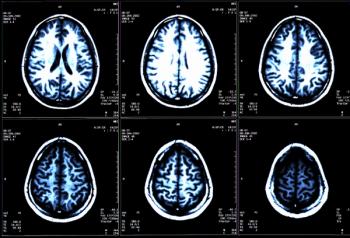
Patients with Multiple sclerosis (MS) treated with mitoxantrone (MTX)—an antracyclin drug used to treat chronic refractory MS—may be at an increased risk of developing early and late left ventricular (LV) dysfunction, suggesting the need for these patients to be periodically evaluated for complications, a recent study found.

For patients with multiple sclerosis, ketogenic diets and fasting diets may be potentially safe and inexpensive complementary treatment options. However, additional clinical studies and data are needed to prove this theory.

The costs of disease-modifying drugs for patients with multiple sclerosis (MS) have almost tripled in 7 years, even with the introduction of generic options in the market, according to a study published by Neurology, the medical journal of the American Academy of Neurology.







